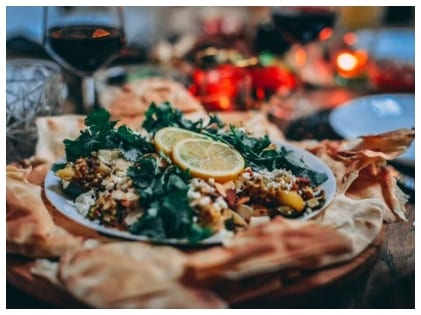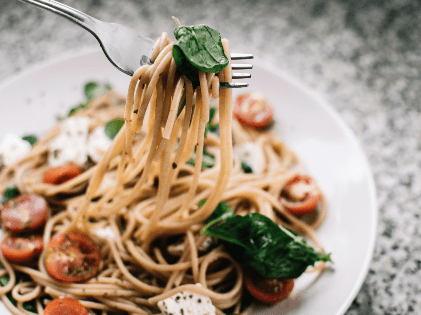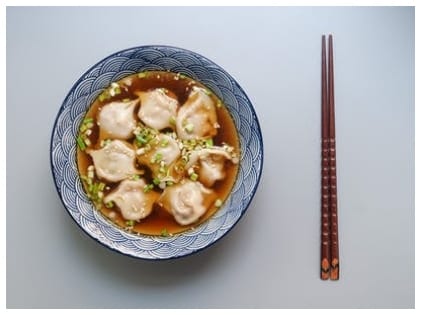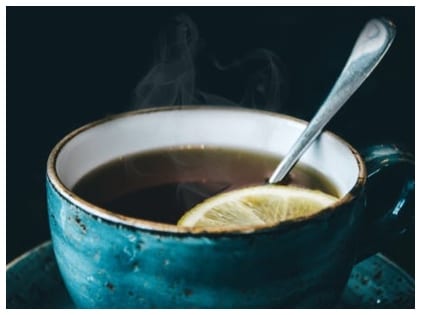 Food customs and habits are very different from one place to another, so one man’s meat can be another man’s poison. When you travel to different corners of the world, you realize how different the food customs are from where you hail.
Food customs and habits are very different from one place to another, so one man’s meat can be another man’s poison. When you travel to different corners of the world, you realize how different the food customs are from where you hail.
And it can be as basic as sipping on your tea to eating your food with your fork. Well, you’ll always have to follow the When in Rome policy and eat exactly as the Romans do. Something as simple as eating can offend a whole lot of people. So, before you travel, here are some customs you must know about. They may seem well a little weird at one glance! But you can never go wrong by eating like a local.
Using A Fork
 You may think that a fork is useful to hold the food while you cut it and put it in your mouth. Okay, wait up! Before you use your fork to put the food into your mouth, here’s a fun tidbit. In Thailand, that’s a crude way of eating. That’s because traditionally, they use the fork only to push the food to the spoon. And you need to use the spoon to put the food in your mouth rather than the fork. So, if you’re traveling to Thailand or dining at a Thai restaurant, be mindful of this cultural nuance!
You may think that a fork is useful to hold the food while you cut it and put it in your mouth. Okay, wait up! Before you use your fork to put the food into your mouth, here’s a fun tidbit. In Thailand, that’s a crude way of eating. That’s because traditionally, they use the fork only to push the food to the spoon. And you need to use the spoon to put the food in your mouth rather than the fork. So, if you’re traveling to Thailand or dining at a Thai restaurant, be mindful of this cultural nuance!
Slurping While You Eat
If you thought eating with a lot of noise was rude, well, we are on the same page as you. Remember the last time you were enjoying a bowl of hearty soup in a restaurant and that loud slurpy noise you made, made every single person in the restaurant look at you disapprovingly? Well, at least you thought so. Still, not everyone disapproves of your slurping noises. Say you are in Japan and you are enjoying-the-food noises will go down well with the onlookers. It may even enhance the dish’s flavor. It will also make it seem the food is tasty and you are enjoying the same.
The Chopstick Rule
 Are you comfortable using the chopsticks? We aren’t too, but willing to learn some chopstick skills in China, But hey, you have to remember that you have to leave the chopsticks in the right way to offend the Chinese. Keeping your chopsticks upright may seem rude to people and is considered bad manners. This is used when the Chinese make offerings to a departed soul during funerals. It would help if you did not do that and never point chopsticks in somebody’s direction as it is rude.
Are you comfortable using the chopsticks? We aren’t too, but willing to learn some chopstick skills in China, But hey, you have to remember that you have to leave the chopsticks in the right way to offend the Chinese. Keeping your chopsticks upright may seem rude to people and is considered bad manners. This is used when the Chinese make offerings to a departed soul during funerals. It would help if you did not do that and never point chopsticks in somebody’s direction as it is rude.
Salt And Pepper Rule In Egypt and Portugal
The choice of flavoring differs from one person to another. So if you feel a dish needs that extra dash of salt and pepper, don’t ask for it in Egypt and Portugal. You may end up insulting the person who cooked your food with a lot of love and skill. So, stop reaching out for those mini salt and pepper shakers lying prettily on the table. Your host may take offense.
The Clean Plate at the End of a Meal and It’s Meaning
In India, eating every morsel of food on your plate may mean you have enjoyed your food, and it also means that the food offered to you has high satiety value. However, it may not mean the same thing everywhere. Particularly, in China, you may end up making the host feel that they did not serve enough food. So leaving a little leftover on the plate may mean you are honoring their food and tradition.
Sipping the Tea – Doing It the British Way
 The British love their tea, and they have a special penchant for this amber-colored brew. Half of the world may be drawn to its darker and the robust cousin, coffee, while the British cannot do without their tea.
The British love their tea, and they have a special penchant for this amber-colored brew. Half of the world may be drawn to its darker and the robust cousin, coffee, while the British cannot do without their tea.
Well, they love their tea and prefer to sip it in a certain way. When you are using a spoon, ensure you do not touch the sides of your cup. And yes, after you have finished sipping the last drop of the aromatic brew, ensure you place the spoon right, right on your saucer, and not in the cup. We don’t mind as long as we get to taste the flavorsome British tea.
So, these are some of the customs that may seem weird at first. But it represents the customs and traditions of that place! So, they are unique and amazing!




